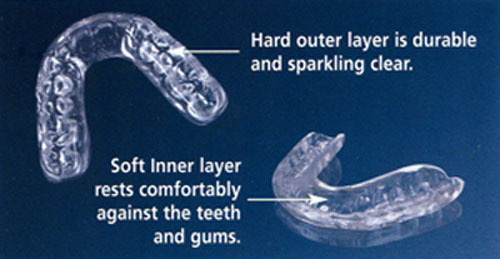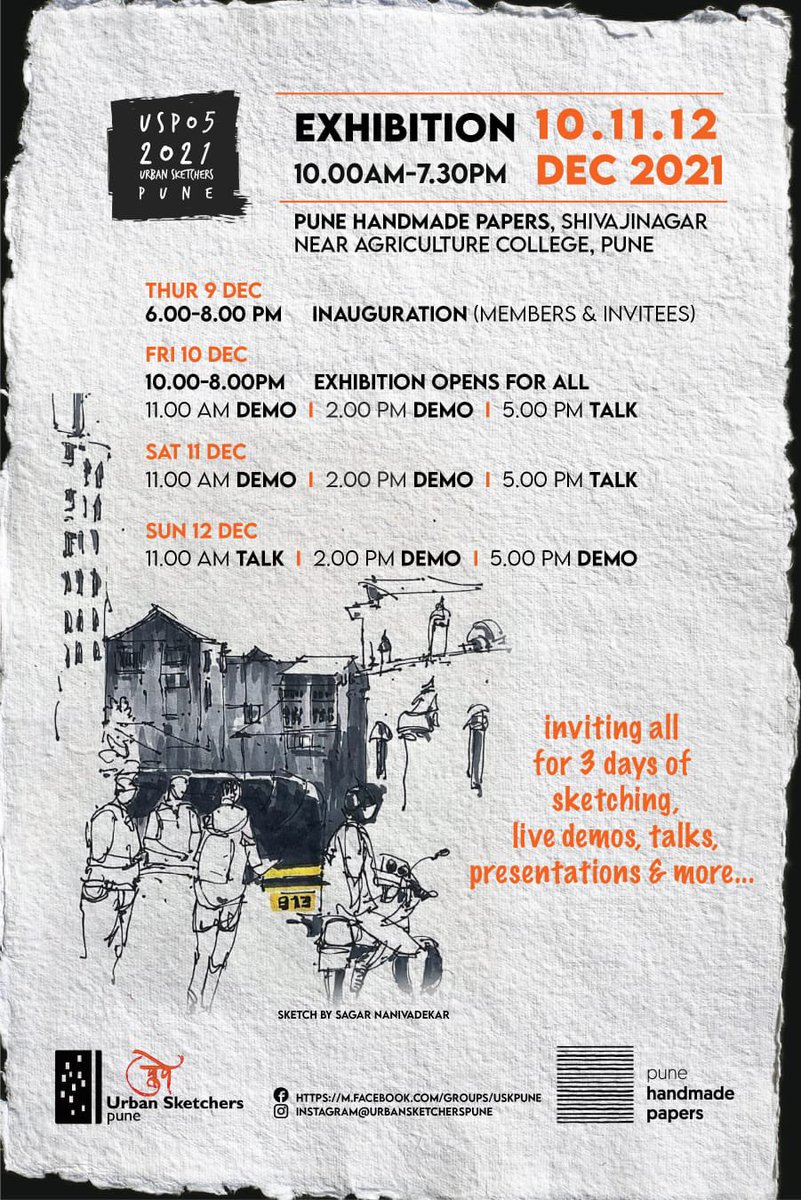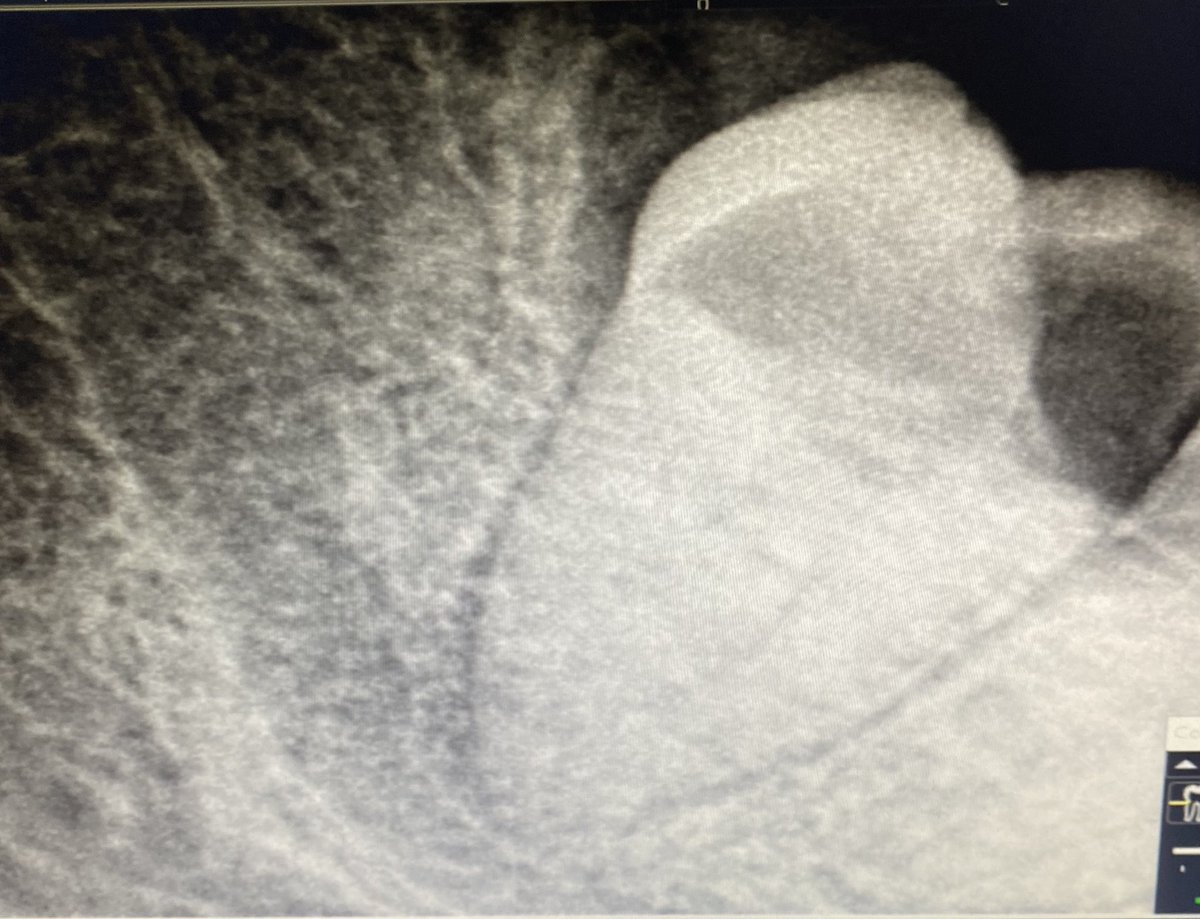
Every week, I get at least one phone call complaining of severe toothache, almost always in the molars. (Back teeth).
The patient comes in and the clinical examination and xrays show no cavities, and the tests for fracture are usually negative at this stage.
#Pune #Dentist
The patient comes in and the clinical examination and xrays show no cavities, and the tests for fracture are usually negative at this stage.
#Pune #Dentist
https://twitter.com/Gautaamm/status/1524044718706860032
Usually it can only mean one of two things:
1) If the pain is restricted to the upper molar, then a recent of concurrent history of sinusitis/runny nose/cold etc. I typically see this around late November and the history is very clear.
2) BRUXISM!
1) If the pain is restricted to the upper molar, then a recent of concurrent history of sinusitis/runny nose/cold etc. I typically see this around late November and the history is very clear.
2) BRUXISM!
What is Bruxism?
In plain and simple words, severe uncontrolled undesirable grinding of teeth against each other, usually occurs when the patients is asleep and the patient has no idea they are doing this.
The test is very simple. I will use my finger to test the Lateral
In plain and simple words, severe uncontrolled undesirable grinding of teeth against each other, usually occurs when the patients is asleep and the patient has no idea they are doing this.
The test is very simple. I will use my finger to test the Lateral
Pterygoid ligament which goes from the back of the upper jaw to the inside of the lower jaw.
This and the masster muscle, located right in front of the ear, are usually VERY tender.
If the patient is a severe "bruxer", the moment I touch the ligament, they suffer acute pain!
This and the masster muscle, located right in front of the ear, are usually VERY tender.
If the patient is a severe "bruxer", the moment I touch the ligament, they suffer acute pain!

A few facts about Bruxism:
1) What causes it?
A) Stress. Life on a daily basis is much more stressful than it was in the years and decades passed. Traffic, weather, inflation, children's education, Virat Kohli's form......the list is endless.
A specific incident/cause makes it
1) What causes it?
A) Stress. Life on a daily basis is much more stressful than it was in the years and decades passed. Traffic, weather, inflation, children's education, Virat Kohli's form......the list is endless.
A specific incident/cause makes it
worse. March/April is prime season for parents of board appearing kids. July/August for parents of kids flying abroad.
2) What causes the pain and specifically why back molars?
A) It all boils down to the lever principle. If we try to push a door open using the doorknob, the
2) What causes the pain and specifically why back molars?
A) It all boils down to the lever principle. If we try to push a door open using the doorknob, the
amount of force required is minimal. Now try pushing it right by the hinge. It's tough and at times even painful.
The front teeth are the doorknob, the TMJ (TemporoMandibular Joint) the doorknob and the molars the area near the hinge. When someone grinds their teeth, the force
The front teeth are the doorknob, the TMJ (TemporoMandibular Joint) the doorknob and the molars the area near the hinge. When someone grinds their teeth, the force
generated is concentrated in the molar area and hence they hurt the most.
At times, they can develop a crack or a worse a vertical root fracture.
If the tooth is cracked, usually there is pain on biting down, which is worst at the point of release. This requires a crown at
At times, they can develop a crack or a worse a vertical root fracture.
If the tooth is cracked, usually there is pain on biting down, which is worst at the point of release. This requires a crown at
least and at times a root canal.
If there is a fracture, then the tooth needs to be extracted. This can lead to a localised abscess as the bacteria enter the nerves space via the fracture and cause an infection.
3) What is associated with this?
A) For starters wear of teeth.
If there is a fracture, then the tooth needs to be extracted. This can lead to a localised abscess as the bacteria enter the nerves space via the fracture and cause an infection.
3) What is associated with this?
A) For starters wear of teeth.

Cracks and fractures of teeth.
Severe sensitivity to cold foods and drinks.
Headaches, neck and jaw pain.
Ear aches.
Migraines (?)
4) What is the treatment for the same?
A) Bruxism cannot be eliminated but it can be managed. At the very least, a nightguard is made to be worn
Severe sensitivity to cold foods and drinks.
Headaches, neck and jaw pain.
Ear aches.
Migraines (?)
4) What is the treatment for the same?
A) Bruxism cannot be eliminated but it can be managed. At the very least, a nightguard is made to be worn
while sleeping. This basically serves 2 functions:
a) Helps protect teeth from grinding forces
b) Deprograms the muscles and reduces the intensity.
Keep your index fingers on your "Temple" (Side of forehead) and push your teeth against each other. You will feel the "Temporalis"
a) Helps protect teeth from grinding forces
b) Deprograms the muscles and reduces the intensity.
Keep your index fingers on your "Temple" (Side of forehead) and push your teeth against each other. You will feel the "Temporalis"
bulge. Now keep a pen between your front teeth around the canines and do the same thing. The intensity of the muscle activation is greatly reduced if not eliminated.
A well made nightguard is adjusted so the back teeth don't engage the nightguard when you grind your teeth.
A well made nightguard is adjusted so the back teeth don't engage the nightguard when you grind your teeth.
I have a few patients for whom I have made these and most of them have experienced instant relief.
Some of them were convinced they needed a root canal and the pain went away on wearing the nightguard.
Occasionally 2 of them will call me complaining of pain in that tooth.
Some of them were convinced they needed a root canal and the pain went away on wearing the nightguard.
Occasionally 2 of them will call me complaining of pain in that tooth.
Invariably they have not been wearing the nightguard and once they start wearing it, the pain goes away.
5) Are there other causes?
A) There are theorised to be other causes but all of them basically contribute to increased stress levels so the trigger always is stress.
5) Are there other causes?
A) There are theorised to be other causes but all of them basically contribute to increased stress levels so the trigger always is stress.
6) Does this only happen at night?
A) No this can and does happen during the day time. I have made nightguards for someone who was a truck driver in the US and he used to grind it down to nothing within a year or so. I always tell my patients to wear it even during the day if
A) No this can and does happen during the day time. I have made nightguards for someone who was a truck driver in the US and he used to grind it down to nothing within a year or so. I always tell my patients to wear it even during the day if
feel a stress attack coming up. What we have gone through over the last 2 years is intense stress generating and it is not a coincidence I have seen a sharp spike upwards in patients grinding their teeth.
7) If the teeth break, won't the crowns break too?
A) Yes they may.
7) If the teeth break, won't the crowns break too?
A) Yes they may.
The nighguard helps prevent that to a large extent. But a lab called Glidewell came up with a special crown called "BruxZr" made of a "white metal" called Zirconia which has high stress bearing ability and hence less likely to fracture.
Fortunately there is a lab in Mumbai
Fortunately there is a lab in Mumbai
which is a licensed partner of Glidewell so they use the same CAD CAM mills to make the crown out of the same Zirconia blocks as the parents lab in the US. So I am basically able to offer my patients the same crown right here in Pune that I was in New Jersey.
8) What are the other side effects?
A) The teeth continue to wear down and so the function, esthetics etc are affected.
Fillings and crowns keep popping off.
The treatment required to repair the damage increases exponentially. It is not sufficient to just fix the broken tooth.
A) The teeth continue to wear down and so the function, esthetics etc are affected.
Fillings and crowns keep popping off.
The treatment required to repair the damage increases exponentially. It is not sufficient to just fix the broken tooth.
9) But I never feel myself grinding my teeth?
A) Given that this almost always occurs when one is sleeping, your spouse or children will hear you grind but you won't. Trust me when I say it's happening, it is.
10) What can I do to avoid/reduce it?
A) Active Relaxation.
A) Given that this almost always occurs when one is sleeping, your spouse or children will hear you grind but you won't. Trust me when I say it's happening, it is.
10) What can I do to avoid/reduce it?
A) Active Relaxation.
Meditation, exercise, proper diet, reducing screentime just prior to bed, etc can all help.
I hope I was able to shed some light on what I feel is the most under diagnosed condition in the world.
I would say 75-80% of my patients show some level of Bruxism. And there is no
I hope I was able to shed some light on what I feel is the most under diagnosed condition in the world.
I would say 75-80% of my patients show some level of Bruxism. And there is no
reason for it to be any different the world over.
One more reason for you to go see a dentist even though you have no pain!
#Pune #Dentist #Grinding #Bruxism #Teeth #PreventiveCare
One more reason for you to go see a dentist even though you have no pain!
#Pune #Dentist #Grinding #Bruxism #Teeth #PreventiveCare
Addendum: in adults it’s often associated with airway obstruction specifically Obstructive Sleep Apnea.
In children it is a clear indication of Airway obstruction specifically tonsillitis!
Both should see an ENT. The children for sure!
In children it is a clear indication of Airway obstruction specifically tonsillitis!
Both should see an ENT. The children for sure!
• • •
Missing some Tweet in this thread? You can try to
force a refresh


























